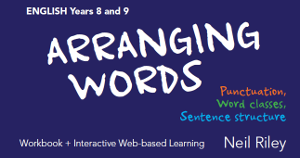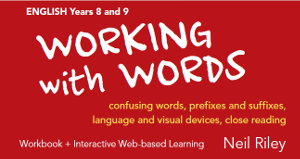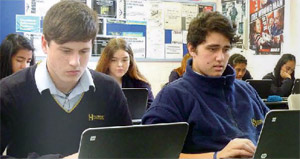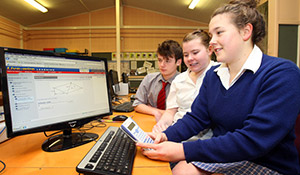What's new
Links to the SOLO taxonomy
All our questions are graded Achieved, Merit and Excellence which correspond to the 3-4
levels of the SOLO taxonomy: One or Many ideas (uni and multistructural), Relate
(relational), Extend (extended abstract). At Senior Level The questions at the senior levels in the Studybetter™ subjects are designed to prepare students for the knowledge and critical thinking skills required for senior curricula and use the appropriate language at each level. For example, - Achieved: identify, name, describe, What? etc - Merit: compare, explain, relate, analyse, How? etc - Excellence: evaluate, reflect, discuss, How well? To what extent? etc At Junior Level At this level the questions require students to - use or identify one or many ideas for Achieved level questions - relate ideas for Merit level questions - extend their thinking for Excellence level questions. The type of questions used - text input, multi-choice and multi-select questions - are valid assessment approaches according to the Creating Effective Assessments for Teaching and Learning Using Solo Taxonomy course run by Cognition Education. Teachers can begin to use the Studybetter™ results to indicate what levels students are thinking at. Helpful Feedback on Livewire Learning (the NZ version of Studybetter™)
1. A Wellington high school Head of English writes:
Re participating in your English teacher's workshop: I would be especially keen to show how I have used the programme to really improve results in Unfamiliar Text in both Level One and Level Two. There has also been a very pleasing flow-on effect at Level Three - last year my class had a 100% pass rate in AS3.3, something we have not achieved before. The class were all products of the very focused use of Studybetter™ in previous years. This year I have been working very explicitly with my bright Year 11 class in showing them how to maximise the use of the programme by checking their errors carefully and seeing whether they are just careless errors, annoying errors (like using a capital letter in their answer when it should be lower-case) or errors caused by a lack of understanding of the particular language technique - in which case I direct them specifically to the section in the programme that can help them to develop that skill more thoroughly. I also did a diagnostic test with my class at the start of the year and highlighted areas that they need to work on, so now they all have an individualised programme that they can attend to at home or in spare classroom time. 2. Ann Cook, after school tutor from Warkworth, says: Our senior maths tutor uses Studybetter™ for all NCEA Level 1 and 2 students and (so far) they have all passed with flying colours. |

|


|
Workbooks - The best of both worlds
The workbooks contain detailed notes in full colour, with graded questions. Aligned to
the eLearning program, together these resources provide a comprehensive and integrated
programme to empower students to become successful self-directed learners.
English Years 8 - 9 Arranging Words This write-on workbook provides lively colour-coded chapters on punctuation, word classes and sentence structure. Each chapter has the key points in summary tables and in depth explanations with worked examples, students can challenge themselves in the write-on sections and then take the opportunity to practise online. Working with Words This write-on workbook provides colour-coded chapters on the background to spoken and written language, the history of English, derivations, poetic devices, language features and close reading skills. Each chapter has the key points in summary tables and in depth explanations with worked examples, students can challenge themselves in the write-on sections and then take the opportunity to practise online. English Years 10 and 11
Science Year 10
Physics Year 11 Hard copy or photocopiable PDFs of write-on workbooks are available for:
Physics Year 12 Photocopiable PDFs of write-on workbooks are available for:
To order, contact Jeff at: sales@studybetter.com.au |
Livewire Learning (the NZ version of Studybetter™) featured in Western News
Cameron Russell, Western News
|

|

|
Livewire Learning (the NZ version of Studybetter™) featured in the Southland Times
Speedy broadband helps
"Northern Southland College pupils are making the most of a speedy new broadband connection, but they have not been using it to watch music videos or update their social media pages. Livewire Learning is an online tool for learning and revision set up by Invercargill's Neil Riley, and is used by nearly 3000 students from 50 schools throughout the country. Pupils can complete revision challenges and earn points for correct answers, with the top scorers winning prizes. Northern Southland deputy principal Wayne Duncan said the students could log in and use the site at home or school, and so far the pupils at the college were doing well in the competition - some in the top few places of their chosen subject. The 'intelligent tutoring system' also allowed pupils to work on their reflective skills, and showed them where they had gone wrong if they did not enter the correct answer, he said. The Lumsden school, which had its fibre-optic broadband connected during the holidays as part of the Government's Rural Broadband Initiative, was previously on a 2MB internet connection. With its new 100MB connection, the first school in Australia to be connected through SNAP internet, staff and students would be able to watch documentaries as they downloaded them, use online testing and tutorial programmes, and online conferencing software, Mr Duncan said."
Nicole Gourley, The Southland Times
|
Hornby High School has decided that students are learning more when they're in control and teachers aren't prattling on.
Scott Aitken, Hornby's head of English, said that almost three quarters of students in the school's English classes prefer using new education software Livewire as the school keeps up with the times of technology.
"Livewire is a modern way to teach and help students through NCEA courses," said Mr Aitken.
"Students use their Livewire Accounts to access texts online and then answer a series of questions relating to it. It lets them know instantly if they're right or wrong, and also grades answers with merits and excellences."
The online teaching method is also being accompanied by the classes adopting Google Docs, a program that lets students log onto their computers from school or at home and edit their projects.
"It's a new way of letting students take over their learning and keep things tidy. It's great for group work because now students log onto their profiles and can all contribute to projects without having to scribble on A4 paper and share hard copy notes. At the moment it's proving useful for students' creative writing. I can log on, read how they're getting on, and then provide feedback."
The new teaching methods are being trialled in four English classes, two in Year 11 and two in Year 12. Livewire courses cost $15 per a student, but Hornby haggled prices down to $6 for the remainder of the school year.
Students out on camps or involved in extracurricular activities no longer risk the chance of falling behind in a course.
"Students love it because they can do it in their own time and if they miss a class they can easily catch up with work. They have more control now with their learning. No more papers get lost, it's independent, and can be portable outside the classroom. Some students can even access it on their phones."
Something students won't like is just how easy it is for students to assign homework.
"It's great because now I can just assign them to do two modules a night and then log on to check their results."